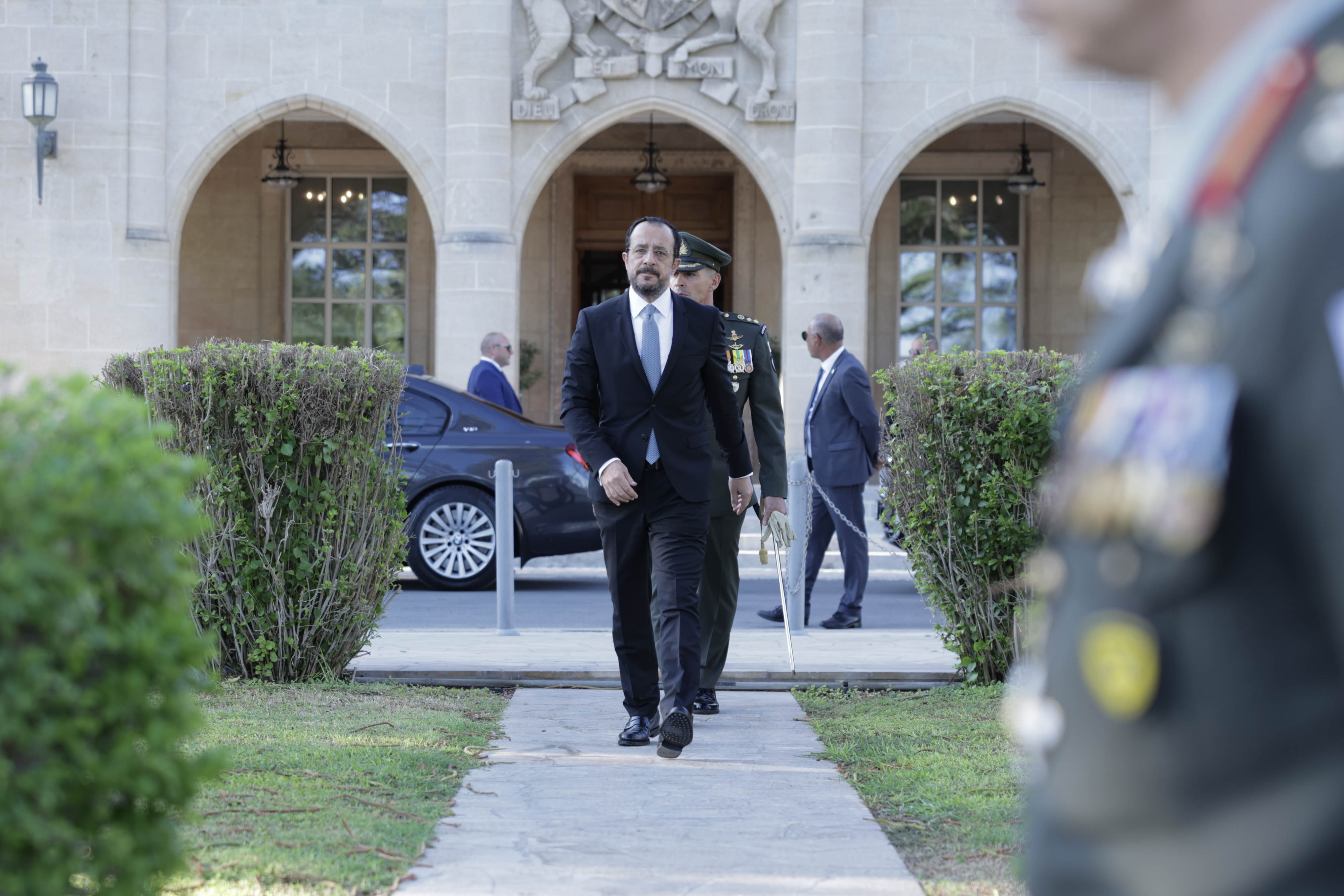President Nikos Christodoulides marked the 65th anniversary of Cyprus’ independence on Wednesday with a televised address that balanced optimism on renewed peace efforts with an emphasis on economic strength, reforms and Cyprus’ role in the European Union.
He opened with a reflection on the state’s history and resilience. “The Republic of Cyprus is the shield that protects us,” he said. “Our independence is the cornerstone of our existence, our greatest success and the foundation of our collective future.”
Turning to the Cyprus problem, Christodoulides said that despite the “tragedy of 1974 keeping our country divided for over half a century”, a “window of hope is opening” for the resumption of negotiations. He cited the renewed involvement of the UN, the appointment of an EU envoy for Cyprus, and the re-engagement of the international community.
“Before 2023, such a development seemed unthinkable. For years Ankara and Mr Tatar set unacceptable preconditions that left us at an impasse. Today, the process has restarted from where it was interrupted in the summer of 2017, in Crans Montana. It is not easy and challenges remain, but the fact that it has restarted gives us hope,” he said.
Christodoulides rejected the notion that the current division is permanent.
“The wall of occupation is not impenetrable,” he insisted. “If we are serious, persistent and committed, we can make what seems impossible possible. Cyprus can and must be reunited, as a fully fledged EU member state where principles and values apply equally to all people.”
He described the Republic’s EU accession in 2004 as “the greatest diplomatic success since independence,” adding that it has safeguarded the rights of both Greek and Turkish Cypriots.
“Our vision is a reunified homeland within the European Union, for the benefit of all lawful residents of this country,” he said.
The president also stressed Cyprus’ growing role in the wider region. “Cyprus has become a pillar of stability in the Eastern Mediterranean and the Middle East,” he said, noting the island’s role in humanitarian operations and evacuations during regional crises. “Cyprus is now recognised worldwide as part of the solution, never part of the problem.”
Christodoulides said that, through actions rather than words, the island has become a “beacon that illuminates the path to peace and cooperation.”
On domestic affairs, Christodoulides highlighted the island’s economic resilience, pointing to strong growth, reduced public debt and repeated upgrades by all international credit rating agencies, saying that these all constitute a “vote of confidence for our country and economy.”
“This is not abstract,” he said. “It means new jobs, more opportunities, and the ability to support households, businesses and the most vulnerable in our society.”
He pledged further reforms to modernise institutions and strengthen transparency, acknowledging that the fight against corruption and inefficiency remained ongoing. “We are determined to build a state that people can trust,” he said. “Our goal is not only prosperity but also justice, dignity and equal opportunities.”
Looking ahead, Christodoulides said preparations were under way for Cyprus to assume the rotating presidency of the EU Council in January 2026. “We are ready to shoulder this responsibility,” he said. “Our aim is to contribute to a stronger, safer and more autonomous Europe, one that responds to the needs of its millions of citizens.”
Concluding, the president tied Cyprus’ independence with the aspiration for reunification and a shared future. “Independence was not given to us; it was won,” he said. “It is our duty to safeguard it, to strengthen it and to pass it on. With unity, faith and persistence, we will make this land a common home for all its people.”






Click here to change your cookie preferences